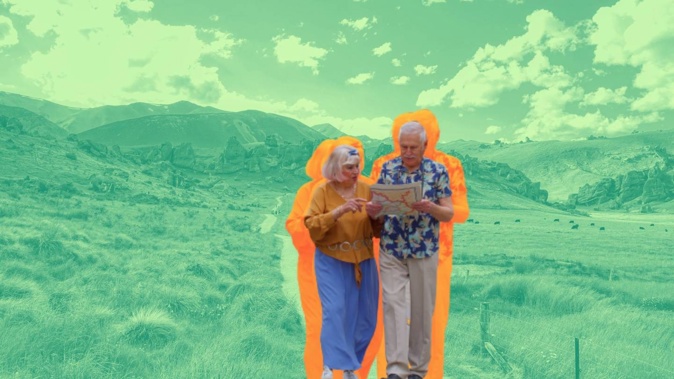
This article was one of Herald Travel’s best-read stories of 2023
An American tourist received a deluge of advice from New Zealander locals and visitors after asking how they can avoid upsetting or annoying locals.
Ahead of their trip to New Zealand, a traveller took to Facebook to ask what behaviours were considered “rude, inappropriate, or just plain strange” in Aotearoa.
“As an American (or really, a tourist from any other country), what are some things we do that really upset the locals?” they wrote to members of New Zealand Travel Tips (NZTT) a private Facebook group with more than 46000 members.
“Are there any local Kiwi customs that an outsider may not understand or think about when visiting?”
Group members didn’t need to be asked twice, and the post gained almost 170 comments from people offering up suggestions for what to do or not do while travelling around the country.
1. Keep it down
One of the first suggestions was to keep your voice down.
“I would just ask any tourist in a cafe/restaurant setting to be mindful of loud conversations,” wrote one user, who said they found their American friends tended to speak louder than necessary.
Another agreed, writing: “we really are a quiet nation and would never speak loud enough that the next door table can hear the conversation”. Since Americans “seem to have their volume set a bit higher”, they can tend to stick out.
Some self-identified “loud Kiwis” countered this but most said the tendency was to keep conversations (especially while on the phone, in a public place) on the quieter side.
2. Be a tidy Kiwi
While America does not condone littering, many said this is especially important in New Zealand.
“Take only pictures - leave only footprints,” wrote one person, who said people are expected to leave an area as they found it, or tidier.
Another offered up the popular motto “be a tidy Kiwi”, adding it was “inappropriate to leave rubbish or food on the ground or your seat”.
This wasn’t just the case for the great outdoors either. “It is not unusual at a place like McDonald’s to empty your own rubbish into the bin and not leave it heaped all over the table when you leave,” advised one person.
3. Start with a greeting
A “hi”, “good morning” or “kia ora” goes a long way with waitstaff and other employees, according to commenters.
“I lived in a popular tourist destination in Canada for 4 years and I noticed Americans had a habit of not greeting the person at the counter and just ordering straight away. It’s always nice to start with a hello,” one person wrote.
Another agreed, writing: “I noticed that quite a lot in the US when we’ve visited there, it rather shocked me as it seemed so dismissive of the people serving”.
One noted how “a lot of countries don’t say a ‘hey how are you’ or a ‘please and thank you’ when ordering”, but added that it was considered best practice in New Zealand. Especially towards people “who have control over what happens to your Kai before it gets to the table”.
As for ordering, one person said tourists should say “can we please have” instead of “I’ll grab”.
4. …Especially on the trails
If you plan on joining the thousands of fellow tourists and locals hiking Aotearoa’s beautiful trails, members said “the nod” was a key yet niche sign of politeness.
“Many tourists don’t seem to get the ‘nod and say hello as you pass’ thing on walking trails,” wrote one person.
“Smile, nod and a hello when out walking,” another added.
/cloudfront-ap-southeast-2.images.arcpublishing.com/nzme/BTQ6K7WDJVEATGSUDABDN275UU.jpg) It's best to pull over and let traffic pass when driving on narrow, winding roads. Photo / Getty
It's best to pull over and let traffic pass when driving on narrow, winding roads. Photo / Getty
5. Let traffic pass
New Zealand’s narrow, winding roads are somewhat notorious for being tricky to navigate but pulling over when you’ve gained a queue behind you was one way to get a big thumbs up from locals.
“Please find a safe place to pull over to the left and let the traffic pass,” suggested one regular driver who said it was considered polite and travellers would be “thanked tenfold”.
6. Keep off the tables
Growing up, most Kiwi kids have been taught to keep their butts off the table at all times. However, locals and visitors said it can be easy for tourists to miss this cultural taboo.
“Do not sit/stand on tables or anything that resembles something that you would eat on,” explained one person.
“Same goes for clothing or shoes,” another added.
Remembering the nuanced rules and manners of a new country can be difficult. Fortunately, many people said, as long as tourists were generally well-mannered, they would be forgiven any faux pas.
“Overall we are a pretty forgiving bunch and love sharing knowledge about our country so if ever in doubt just ask, we will help you,” wrote one person.
This article was originally published on February 11, 2023
Take your Radio, Podcasts and Music with you









